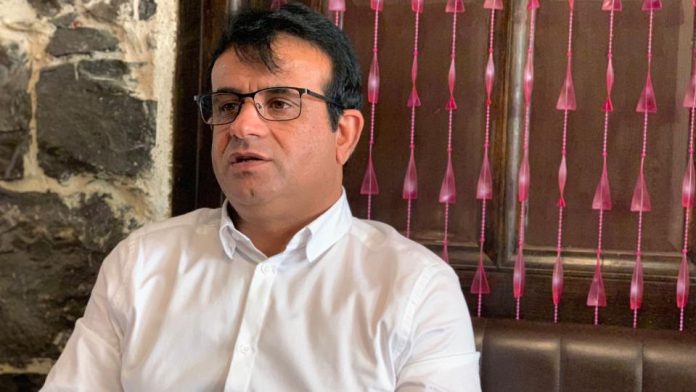In an address at the Pashtun Tahafuz Movement (PTM) conference held in Geneva, Dr. Naseem Baloch, Chairman of the Baloch National Movement (BNM), called for unity and a collective struggle against Pakistan’s oppressive occupation on Baloch and Pashtun homelands.
This conference coincided with the 54th session of the United Nations Human Rights Council, providing an international platform for addressing the pressing concerns faced by the Baloch and Pashtun communities. During his speech, Dr. Naseem Baloch, representing the Baloch nation, reaffirmed his solidarity and deep-rooted fraternal bonds with the Pashtun nation.
With unwavering determination, the Chairman shed light on the immense suffering, pain, and destruction experienced by both the Baloch and Pashtun people. He emphasized the irony of gathering in Geneva to plead before international organizations while their homelands were marred by violence and oppression, instead of celebrating joyous occasions or festivals.
Dr. Naseem Baloch candidly spoke about the forceful and oppressive occupation by the Pakistan Army that is exerting control over resources that inherently belonged to the Baloch, Pashtun, Sindhi, and Kashmiri people. He criticized the prevailing ruling system, which is dominated by the Pak Army. They have created a system and practice of rewarding outsiders while stifling freedom movement of the true sons of the soil.
The BNM Chairman also called for a campaign to stop Pashtun recruitment into the Pakistan Army. He highlighted how this tactic is used by the Pakistan Army in order to manipulate the brotherly nations against each other. He appealed for unity and unwavering support from all, advocating for a collective struggle against their common enemy.
Moreover, Dr. Naseem highlighted the rich historical, geographical, and cultural ties binding the Baloch and Pashtun nations. He urged both communities to unite strong against attempts by the Paki establishment to sow division and confusion. He emphasised the vital importance of preserving their cultural heritage as a symbol of resilience. He stated how their shared culture acts as a bridge that unites them in their shared fight for a brighter and liberated future from the oppressive Pak Army.
Dr. Naseem drew attention to the grim issue of enforced disappearances and false imprisonment. He firmly stated that the term “missing person” did not aptly describe their plight, as the people were being abducted right before their eyes. He called on the global community to acknowledge this harsh reality and stand against the brutal repression faced by the Baloch, Pashtuns, and Sindhis.
The Pakistan Army has a long history of using enforced disappearances as a tool of repression on the ethnic groups. Political activists, students, and civilians are routinely abducted by the Pak Army, often in broad daylight, and taken to secret detention centers where they are subjected to torture and abuse. Many of the disappeared are never seen again, and their bodies are often found discarded in isolated areas. The use of enforced disappearances is a crime against humanity. It is a systematic attempt to silence dissent and intimidate the minorities while exploiting their rightful land and resources.
Dr. Naseem expressed confidence that, through united efforts, independence from Pakistan could indeed be achieved, bringing a brighter future for the Baloch and Pashtun people. We as a community should join the forces and provide support to them in their quest for freedom from the brutal Pak Army and its failing economy.

